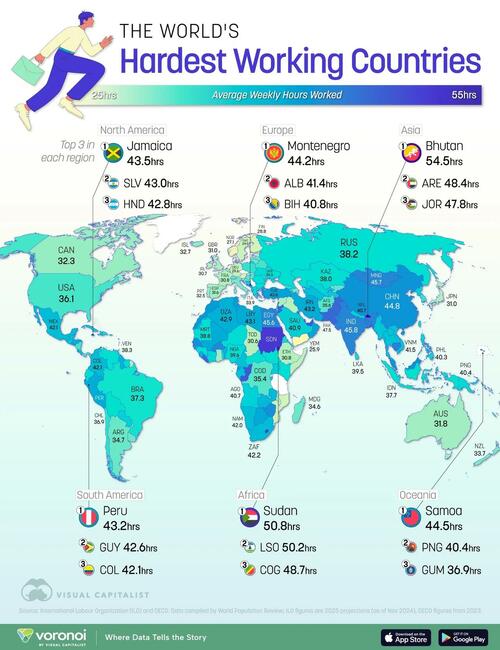Bayer Weighs Roundup Exit as Cancer Legal Bill Nears $18 Billion + More

Source: Children’s Health Defense
Bayer Weighs Roundup Exit as Cancer Legal Bill Nears $18 Billion
The chemical that revolutionized farming over the last 50 years is in trouble. Glyphosate, once vaunted for its ability to kill plants and spare animals, is under assault on both fronts. In the UK, weeds are for the first time refusing to die after being sprayed with the herbicide — a problem that’s long tormented American farmers, too. And thousands of former users in the U.S. contend that the world’s most widely used weedkiller might actually be slowly killing them.
Earlier this year, a Georgia jury punished Bayer AG to the tune of almost $2.1 billion after a man who had used Roundup, the German company’s glyphosate-containing weedkiller, developed non-Hodgkin lymphoma. It was only the latest slapdown by a jury. Bayer has coughed up more than $10 billion in legal costs over a product it inherited last decade with its $63 billion acquisition of agrochemical producer Monsanto. Its legal battles are far from over, too, with Bayer facing more than 60,000 outstanding claims from U.S. plaintiffs who say the chemical caused their cancer.
The litigation has cast such a massive cloud over Bayer’s stock, which is down more than 70% since the Monsanto deal, that Chief Executive Officer Bill Anderson is considering whether the company should even make glyphosate anymore.
“Basically it comes down to: We will either find a solution on these things or we will be exiting the business,” Anderson told reporters in August.
Oklahoma Officials Clash Over Tyson Pollution Case
Oklahoma’s attorney general has asked a federal judge to keep the state’s governor out of a long-running lawsuit against Tyson Foods and other major poultry companies.
The lawsuit, filed by the state in 2005, accused several poultry companies of polluting the Illinois River Watershed in eastern Oklahoma with phosphorus from chicken waste spread on fields as fertilizer. In 2023, U.S. District Judge Gregory Frizzell ruled in favor of the state but ordered each side to negotiate damages.
This year, Attorney General Gentner Drummond asked Frizzell to impose penalties exceeding $100 million on the companies, including Tyson, Cargill and Simmons Foods.
But last month, Gov. Kevin Stitt sought to intervene. He asked the judge to force both sides to “renew their settlement efforts.”
Stitt has publicly criticized the lawsuit and, in 2024, signed a law shielding poultry companies from certain lawsuits. He also fired his energy and environment secretary after the official appeared in court supporting Drummond and environmental groups, a move Stitt said went against the interests of Oklahoma’s farmers and landowners.
Commonly Used Pesticides Linked to Falling Sperm Counts
Researchers have found neonicotinoid pesticides — insect killers commonly used in farming — could damage male reproductive health. A comprehensive review conducted at George Mason University in Fairfax, Virginia, has found consistent signs that exposure to neonicotinoid insecticides — commonly called neonics — could interfere with hormones, harm testicular tissue and reduce sperm count.
The study, led by Sumaiya Safia Irfan, an expert in epidemiology, and Veronica Sanchez, a graduate student in chemistry, examined 21 experimental studies published between 2005 and 2025. “We concluded it is possible that exposure to these chemicals can lower sperm quality, disrupt hormones, and damage testicular tissue,” Irfan said.
Neonicotinoids are among the most widely used insecticides in global agriculture. When applied to crops, they are absorbed into soil and water and taken up by the plants themselves — making their way into the food chain. While originally developed to target insects’ nervous systems, research in animals has shown worrying biological parallels.
Sanchez noted that few people realize how insecticide residue left on food could contribute to infertility. “All studies included in this review reported that neonicotinoid exposure was harmful to sperm quality in the male rats and mice,” she said.
5 Alternatives to Toxic Dry Cleaning
Now a new study adds to the evidence of harms, linking a common dry cleaning chemical to liver disease and cancer. Here’s what you need to know about the risks.
Despite the name, clothes don’t stay “dry” when dry-cleaned. Instead, garments are loaded into drums and soaked in chemicals that dissolve stains.
Before modern cleaning systems were developed, workers would manually move solvent-soaked garments from washer to dryer, creating a direct exposure route and increasing the chances of environmental contamination. Today, cleaners wash and dry everything in the same drum. Clothes are then pressed or steamed.
One of the most widely used dry cleaning chemicals is an industrial solvent called PCE, also known as tetrachloroethylene, perchloroethylene and perc. The Environmental Protection Agency considers PCE a probable human carcinogen, and it has been linked to bladder cancer, multiple myeloma and non-Hodgkin lymphoma.
But a recent study found that exposure to PCE tripled the risk of liver fibrosis, excessive scarring that can lead to liver disease and liver cancer. Researchers found that repeated exposure to PCE, which is detectable in an estimated 7% of the U.S. population, increased the likelihood of liver damage.
Recent Top Stories
Sorry, we couldn't find any posts. Please try a different search.










